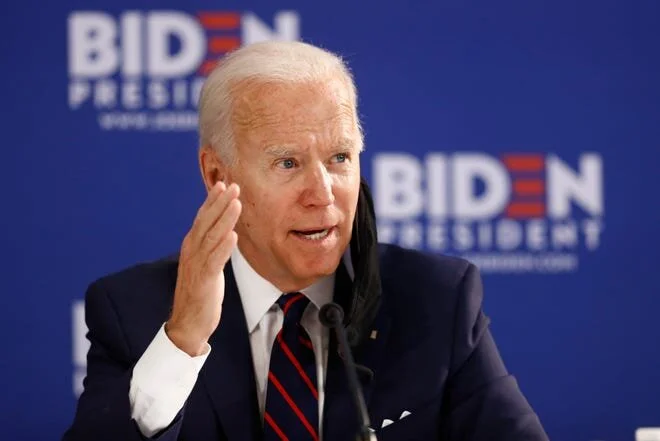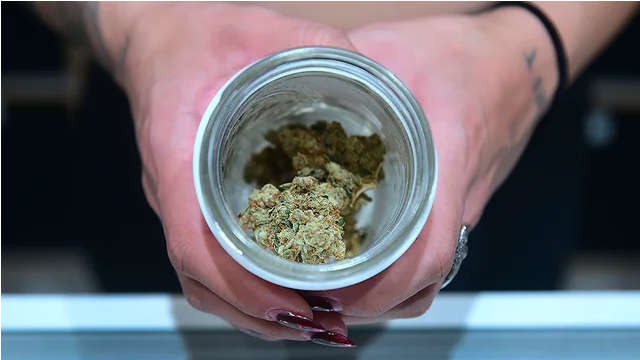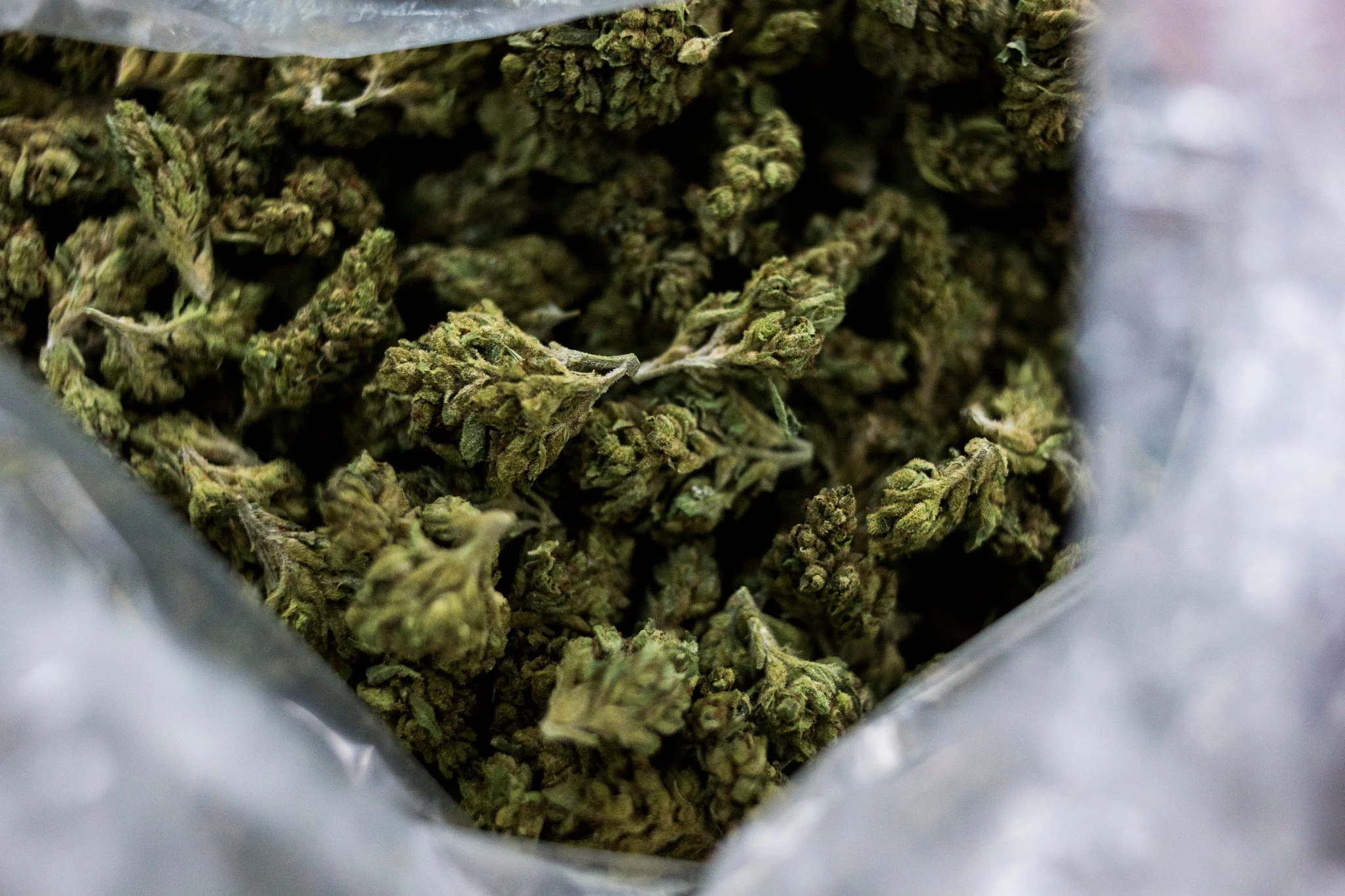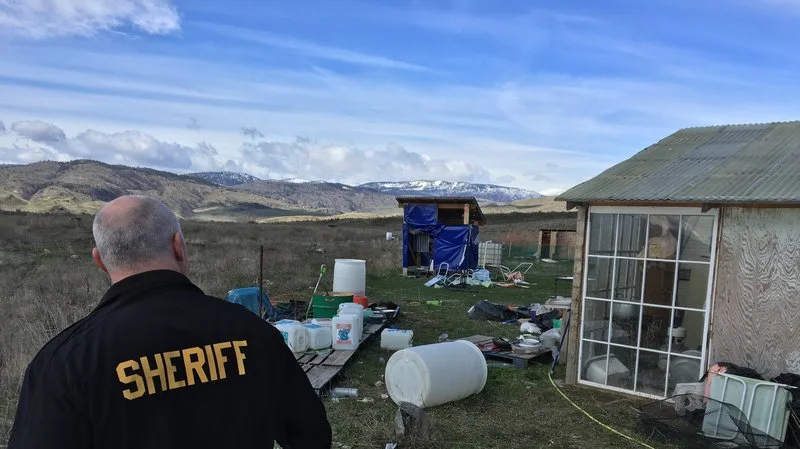A funny thing happened on the way to cannabis legalization: illegal pot is still big business.
Read MoreStay in the know with the latest on our fight against the legalization of marijuana
Have an article that you would like us to post? Share it on our Facebook page!
‘Broken system’: Banned pesticides keep showing up in California’s legal pot→
/‘Broken system’: Banned pesticides keep showing up in California’s legal pot
SFGATE investigation finds evidence consumers aren't being protected
Read MoreBrutal Marijuana Studies Now Emerging - It Should Never Have Been Fully Legalized
/For years, marijuana advocates claimed that if only America would loosen restrictions, we'd all see how beneficial the drug is. But now, more than 10 years after the first efforts to do just that, we are seeing that the critics were right. Liberal pot laws and increased usage are far from the panacea pot-lovers claimed. Starting back in 2012, Colorado passed a law to allow private use of marijuana. Soon the state of Washington joined the Centennial State in loosening its pot laws. And many more came in the following years, especially when the states began to realize it could tax "legal" marijuana and bring millions into their state treasuries. Now even the federal government is looking to loosen the reins and is preparing to take pot off its Schedule One prohibitions, a move said to be the first step in decriminalizing marijuana. But now these states are finding that it is time to pay the piper, as a raft of ill-effects are spreading like wildfire all across the country. From mental illness to addiction and impaired driving, the effects on many are not as beneficial as advocates claimed. There do seem to be a very few beneficial uses for pot for a small number of people. It does help in pain relief for the chronically afflicted, it can help with nausea from chemotherapies and it is sometimes effective for those with anxiety. But all those benefits are limited and are far outweighed by the deleterious effects seen when widespread use is factored in, according to a raft of new studies reported by the Daily Mail. With a pool of more than 40 million pot users to look at, researchers are finding that recreational use of the drug is becoming an increasing problem everywhere it is being tried. As the Mail noted, researchers from the Aarhus University Hospital in Denmark have found that despite claims by pot advocates, the drug is just as addictive as any other drug. And 41 percent of users have developed major problems with depression. The research found that chronic marijuana use quadrupled risk of developing a bipolar disorder and added to a rise in psychotic breaks, including thoughts of, and deaths by, suicide, with pot linked to 30 percent of cases of schizophrenia. The researchers added that people who already have a propensity for these mental disorders often find that pot makes them worse, not better. That is nothing like the benign effects pot advocates claimed we'd be seeing. Pot advocates also claimed that one can't really become addicted to the drug. This has also been revealed as false. "New research from University of Washington and Kaiser Permanente Washington Health Research Institute estimates 21 percent of marijuana users had become addicted," the Mail reported, adding that at least four million Americans have developed "marijuana use disorder" since pot became so much easier to get. Another claim that many advocates have made is that pot will calm you and make sleep come easier. This is also not true, studies have found. "A 2021 study in the journal BMJ reported adults who used cannabis 20 or more times in the previous month were more likely than non-users to get six or fewer hours of sleep per night," the Mail reported. In addition, 39 percent of daily pot users developed clinical insomnia. An even more alarming study says that pregnant women will put themselves at a 70 percent higher risk of birth defects if they regularly use pot during pregnancy, and they will be 2.3 times more susceptible to a stillbirth. Also, "A 2022 study published in JAMA Pediatrics found prenatal cannabis exposure after five to six weeks of pregnancy is associated with attention, social and behavioral problems that persist into early adolescence," the Mail reported. Finally, the evidence seems irrefutable that heavy pot smoking is just as bad on your body as heavy tobacco smoking. Smoking anything -- pot or tobacco -- increases the risk of coronary artery disease and also puts users at an increased risk of lung disease. A study from Canada found that "three-quarters of marijuana users had emphysema - a lung disease which leaves sufferers struggling to breathe -- compared to two-thirds of tobacco users," the Mail wrote. While it might be a better idea to go to a prescription model, where only seriously ill people are able to gain access to pot, it seems clear that recreational and non-medicinal use has had detrimental effects on Americans.
The legalized drug crisis is harming young people far more than most realize→
/The data is in and it’s becoming increasingly clear that the impacts of commercial marijuana industry are even worse than we thought, particularly for America’s young people. A new report released by Smart Approaches to Marijuana shows the reality in "pot-legal states" paints a vastly different picture than the common sales pitch of the industry and supporters of legalization.
The marijuana industry, which spent billions to lobby elected officials and bankroll legalization referendum campaigns, is following the playbook pioneered by Big Tobacco. They recognize that the road to big profits runs through the heaviest users. As such, they have increased potency of the drug by more than four times since 1998, hoping to hook kids while they are young and vulnerable. The numbers show that it’s working.
Usage rates have reached record highs among those who are most vulnerable to marijuana’s long-term health effects. The National Institute on Drug Abuse warned, "Past-year, past-month, and daily marijuana use (use on 20 or more occasions in the past 30 days) reached the highest levels ever recorded" among those aged 19 to 30. The percentage of 8th, 10th and 12th graders who used marijuana daily has more than tripled between 1991 and 2020.
Daily marijuana use is indicative of a marijuana use disorder, also known as addiction to marijuana. For all the talk about how pot is not addictive, in 2021, 1.3 million individuals between the ages of 12 and 17 had a marijuana use disorder, accounting for more than 46% of users in that age group. Legalization is also associated with a 25% increase in marijuana use disorder among them as well.
Jeremy Baldwin tags young cannabis plants at a marijuana farm operated by Greenlight, Oct. 31, 2022, in Grandview, Mo. Voters in North Dakota and Arkansas have rejected measures to legalize marijuana, while those in Maryland have approved legalization. Similar measures also were on the ballot in Missouri and South Dakota. (AP Photo/Charlie Riedel, File)
As usage rates, potency and addiction have increased, the adverse effects have also increased. Though supporters of legalization like to downplay the risks of marijuana, the drug caused more than 70,000 individuals younger than 18 to have marijuana-related emergency department visits in 2021.
The industry told parents and politicians that they would not target kids. That’s turned out to be false. From "Pot Tarts" to "Stoney Patch Kids," the packaging of edibles laced with high-potency THC often looks like traditional snacks. Not surprisingly, between 2017 and 2021, there was a 1,375% increase in at-home exposures to marijuana edibles involving children younger than 6.
More minors are driving under the influence of marijuana too. In 2021, 10.67 million people admitted to driving under the influence of marijuana, including 1.36 million who were between the ages of 16 and 20. There were 2.41 times more minors on the road under the influence of marijuana than were under the influence of alcohol.
Minors have also gravitated toward marijuana vapes, products engineered to include a near-pure form of THC. Between 2017 and 2020, the percentage of 12th graders who vaped marijuana increased from 9.5% to 22.1%. Among 10th graders, it increased from 8.1% to 19.1%, and among 8th graders, it increased from 3.0% to 8.1%. A 2022 study found, "cannabis vaping is increasing as the most popular method of cannabis delivery among adolescents in the United States." and frequent use is increasing faster than occasional use.
The marketing scheme of the industry has been to engineer a more potent drug, in forms easier to consume and while stoking the perception that it’s harmless. In 1991, 78.6% of 12th graders believed that using marijuana regularly puts one’s health at great risk. But in 2021, only 21.6% held this viewpoint. Those who hold that point of view are six times more likely to use it than individuals who perceive it as being high risk.
By 2021 nearly seven in 10 12th graders seemingly approve of marijuana use.
We all want the best future for our children. Yet, the growth of the pot industry has provided kids with greater access to a drug that medical science links to psychosis, depression, suicidality, and lower IQ at a time when the brain is still developing. Regular users are nearly five times more likely to develop a psychotic disorder and users of high-potency marijuana are four times more likely than users of low-potency products to become addicted.
More young people are becoming addicted to marijuana, and it is sending more of them to the hospital. More of them are using a more potent form of the drug. It is past time for our nation to reverse course and advance drug policies that protect our children, rather than allow them to be collateral damage for another Big Tobacco.
Does marijuana legalization work? The answer is a resounding No.→
/In a powerful review of how Colorado is doing since legalizing marijuana for medical use in 2009 and for recreational use in 2014, David Murray of the Hudson Institute suggests the answer is a resounding “No.”
Read MoreCommend Biden for Resisting Big Marijuana→
/The task force's non-endorsement of legalization—which is also shared by almost every single medical association in the country, and a group of prominent scientists like the head of pediatrics at Johns Hopkins, the first Black magistrate judge in the U.S., and Harvard professors—is on solid ground.
Read MorePoliticians must recognize Americans' changing perceptions of marijuana→
/It was no surprise then that our survey found two-thirds of Americans support curbs on the commercialization of marijuana, and 78 percent want to see warning labels (similar to those on alcohol and tobacco) on pot products.
Read MoreReasons Marijuana Legalization Seems To Be Failing→
/One of the biggest arguments made by cannabis advocates when trying to sell their spiel to politicians and voters was that legal weed would eliminate the black market. This, they said, would make it more difficult for children to get their hands on pot than in decades past while also generating significant tax revenue for the states. But the underground pot trade hasn’t really gone anywhere. In fact, it is only growing stronger now that criminal organizations have the luxury of being domestically based instead of running distribution from Mexico.
Read MoreLegalizing Marijuana Has Created a Black Market Plaguing Riverside County→
/There is a new sheriff in Riverside County, and he is attacking the illegal marijuana cultivation that’s plaguing his community in Southern California. Sheriff Chad Bianco was elected in November 2018, and has taken on the growing black market with a vengeance.
Read MoreJAMA Pediatrics study doesn’t provide enough data to support its findings
/Last week, The Marijuana Report covered two studies: “Association of Marijuana Laws with Teen Marijuana Use” published last week in JAMA Pediatrics and “Trends in Single, Dual, and Poly Use of Alcohol, Cigarettes, and Marijuana Among US High-School Students: 1991-2017” published last month in the American Journal of Public Health.
‘Getting Worse, Not Better’: Illegal Pot Market Booming in California Despite Legalization→
/It’s been a little more than a year since California legalized marijuana — the largest such experiment in the United States — but law enforcement officials say the unlicensed, illegal market is still thriving and in some areas has even expanded.
Read MoreHow state officials snuck themselves into Georgia’s Hope Act, sticking taxpayers with the cost of regulating medical marijuana so officials can profit from its production
/Because no tax was levied to pay for the costs of regulating a medical marijuana industry in Georgia, taxpayers will bear that burden so that state-wide public officials and legislators – maybe even some who were actually all in that same room – can make money growing and processing medical pot.
Read MoreStop ignoring the brutal downside of legal pot→
/Politicians are pushing to legalize recreational marijuana in New York, New Jersey and Pennsylvania, following 10 other states. But the Parent Teacher Association, local health officials and pediatricians are pushing back, warning about the permanent damage to youngsters’ brains caused by weed. If you have children, trust the PTA, not the pols.
Read MorePromises about legal weed benefits are false→
/In California, voters were sold the line that the state could collect upwards of $1 billion in revenue. The reality is the state has failed to bring in anywhere close to that mark — it fell 75 percent short of it through September. All this prompted outgoing California Gov. Jerry Brown to say, “I have not counted on any revenue from marijuana. Who’s counting on the marijuana revenue? People said that to make it more plausible for voters.”
So what’s the issue? It appears the black market is nimbler than anyone thought. In fact, it's growing stronger. One in five marijuana users in the state continue to purchase the drug off the street as opposed to buying it from retail stores. The situation is so bad that foreign cartels and criminal gangs are turning whole neighborhoods into pot-growing operations and even growing the drug on national lands.
And yet Big Marijuana — whose components now include Big Alcohol and Big Tobacco — keep claiming they can end the illicit trade of the drug through “regulation.”
Read MoreDespite Legalization, Marijuana Black Market Hides In Plain Sight→
/Legalization was supposed to end pot smuggling, but that hasn't worked out.
Read MoreWhy America will regret legalizing marijuana→
/Chuck Schumer is trotting out old canards about how cannabis "doesn't hurt anybody else." Hearing him tout the virtues of legalization in Colorado and Washington ("lots of good and no harm!"), one is reminded of Purdue Pharma, the pharmaceutical company that spent years (and millions) telling doctors that opioids weren't seriously addictive when prescribed to pain patients. It's stunning that educated people ever believed this, but many did. Today, many are equally anxious to believe that legal pot probably has little to do with Colorado's sharp increase in auto accidents. And there are homeless people everywhere, right? Correlation doesn't equal causation.
Read MoreCanadian doctors group warns about the adverse effects of medicinal marijuana
/There is little to no research to support the supposed benefits of medical cannabis, and what evidence exists suggests that using marijuana as medicine may do more harm than good, family doctors’ associations across Canada are telling their members.
Read MoreWhat voters really mean when they say they support marijuana legalization→
/Given more options from which to choose, respondents’ support for legalization dropped by a third, from 60 percent to 40 percent. Apparently, some of the poll respondents who had previously expressed support for legalization assumed they were being asked about the legality of medical marijuana or of personal marijuana possession. The “60 percent support” was thus actually a mix of people who supported legalization and those who opposed it but wanted marijuana to be accessible to severely ill people, opposed criminal penalties for personal consumption, or both.
Read MoreMexican drug cartels may use legal marijuana to take over Northern California pot trade.→
/Part of the legalization argument is that regulating and taxing marijuana could give California enforcement agencies the funds they need to eradicate illegal farms. But Gabriel thinks it will take years before enforcement can put a dent in the illegal grows that he estimates pop up by the hundreds every year. He points to Humboldt County, about five hours northwest of Calaveras, where authorities are combing through 2,300 applications for growers who want to start selling in California’s recreational market. But there are also an estimated 12,700 illegal farms in the county.
Read MoreAs legalization of pot ramps up in California what should citizens be considering?
/The “medipot” industry has been lawless. Those willing to break the law are not likely to obey new, weak and unenforced regulations. Local law enforcement throughout the state, including our own Chief Zimmerman pled for banning commercial pot drug dealing operations. Most jurisdictions in the state have listened. Sadly several cities, including San Diego City, have not.
Read More


















